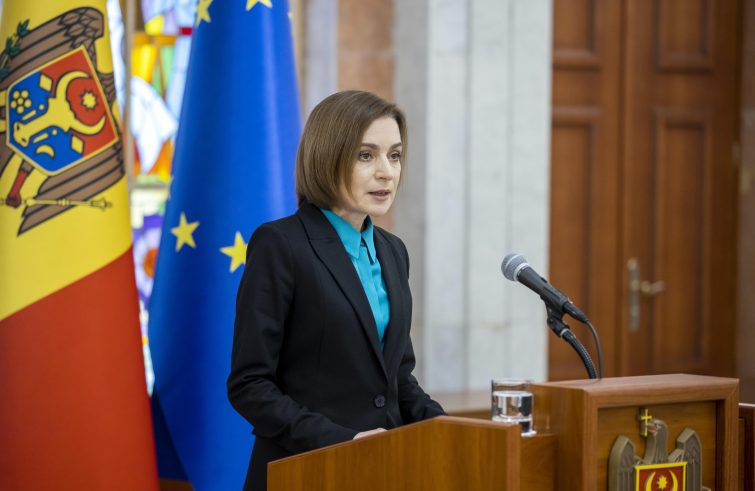
“The Church is calling for a constant control of the situation, avoiding involvement in hostilities that risk becoming grounds for fuelling the war or internal conflicts.” Msgr. Cesare Lo Deserto, vicar general of the diocese, spoke to SIR from Chişinău at the end of an extremely tense day in the region. “The Church – he added – upholds the cause of peace and supports whatever can be done to bring peace to Moldova and Ukraine. Pope Francis sent out a clear message that marks the path forward, in the hope that a solution will be found and that Ukrainian territory will be liberated.” On the critical issue of Transnistria, he remarked:
“Long-lasting solutions are needed. We have seen that semi-solutions or so-called hybrid solutions are useless, in fact they can be dangerous.”
Msgr. Lo Deserto described the general atmosphere in the Moldovan capital today. Speaking to the nation on February 13, Moldovan President Maia Sandu accused Russia of plotting to violently “overthrow the constitutional order” through the intervention of “saboteurs with military background, camouflaged in civilian clothes” present in the country, aiming “to replace the legitimate power from Chișinău with an illegitimate one”. While Moscow categorically denied this statement by Sandu, it caused heightened tensions in Moldova and in border zones. To the extent that “Russian spy drones violated Moldovan airspace yesterday – said Lo Deserto – which were intercepted north of Moldova and heading towards Ukraine. An additional drone was intercepted on the national territory. This sparked off immediate response throughout the area. NATO activated surveillance at the Romanian border, while the presence of the drones forced Moldova to close its airspace several times, which was not reopened until the evening.”
“I think that Russia is waging a psychological war. – added the Italian priest -. In other words, it is attempting to cause destabilizing events within society as a whole. The overall situation is marked not only by extreme distress, as it is also hard to understand what is really happening. It remains to be seen. For sure, this is a very delicate moment for Ukraine, Moldova, for the entire region.”
According to the Italian priest, the upcoming anniversary of February 24 – marking the start of Russia’s large-scale invasion of Ukraine a year ago – is not connected with the escalating tensions in the area bordering the warring country. “Russia has no interest in expanding the conflict,” he said, “and it repeatedly claimed that it has no direct interest in Moldova. However, Transnistria remains a gateway that suggests a different scenario.” Russians enter Transnistria with greater ease compared to entering Moldova. “Russians are welcomed in Transnistria,” Lo Deserto noted, but “Moldova considers that region as one of its territories and this is why I have no idea how it would respond to an eventual annexation of Transnistria to Russia – just as it happened with the annexation of some regions of Ukraine from Crimea to Donbas.”
As always happens, the local population pay the price for this state of alert. Airports in chaos, army controls on the border, and a host of continual inconveniences are a major problem for everyday life in the country. “There is a situation of constant uncertainty, as if something might happen at any moment but you don’t know what,” Lo Deserto remarked.
“Ultimately, the smallest incident is all it takes to trigger large-scale disruption.”











